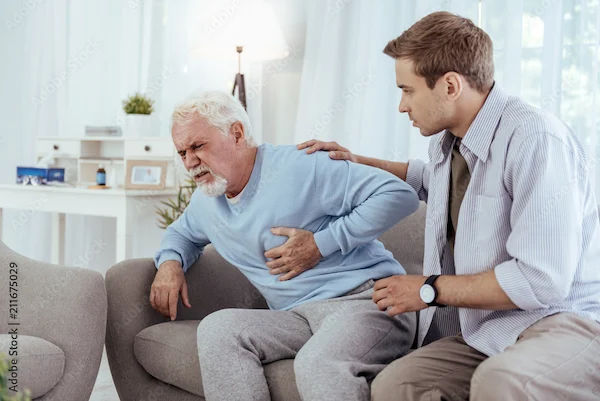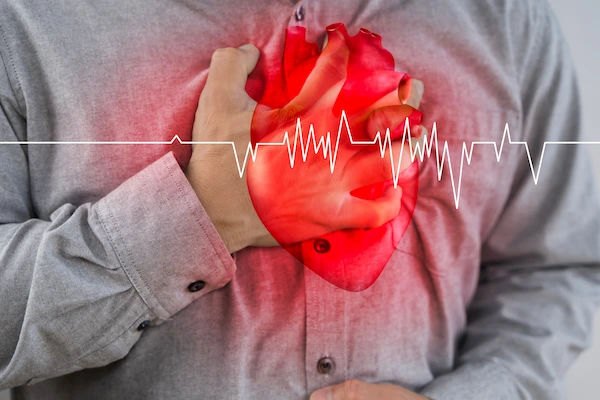- Male
- 29 Years
- 22/01/2025
I'm really concerned about this pain I've been having in the center of my chest since last night. It gets worse when I'm climbing stairs and now I even feel it while walking. I did an ECG this morning. What could be causing this, and should I be worried?
Answered by 1 Apollo Doctors
if no pathological changes observed in the ecg cardiac markers and ecg is advised...
Dr. Shubham Suggests...
Consult a Cardiologist
Answered 04/07/2025
0
0

More Cardiology Health Queries
View allI'm looking for some advice. My husband, who's 29 and weighs around 92 kg, has been feeling a pinching sensation in his chest and some pain in his left arm for about 45 days now. He's a non-smoker, drinks occasionally, and his parents both had heart attacks before. Our cardio doctor suggested a CT coronary angio test, which is non-invasive. About six months ago, he had episodes of increased heartbeats, anxiety, and sweating, and we did a bunch of tests like the 2D Echo Doppler, TMT, and trop T, which all came back normal in September 2018. I'm wondering if this is a good step to take to get more clarity on what's happening with him. Are there any side effects from this test we should be aware of, and is there anything specific we should do to prepare before he takes the test?
Thats unusual,visit General Physician for appropriate approach.and maintain balanced diet and healthy lifestyle
Answered by 1 Apollo Doctors
I'm really worried because I've been dealing with chest pain for the last 2 years. I've had all kinds of tests done like ECG, 2D Echo, TMT, and even a CT Coronary Angiography, and they all came back normal. But my blood test results are a bit concerning. My high sensitivity C Reactive protein is at 9.7 mgL, lipoprotein A is 35.09 mgdL, Lipase is 63.6 UL, SGOT is 70.9 UI, SGPT is 88.4, and GGT is 80.9. These numbers have gone up compared to my earlier tests. The chest pain is really troubling me the most. Could you advise me on what steps I should take next?
Given your elevated blood test values, it is important to further investigate the cause of your chest pain. The increased sensitivity C Reactive Protein (CRP) level indicates inflammation in the body, which may be related to your symptoms. Considering your symptoms and blood test results, I recommend consulting with a healthcare provider to discuss the possibility of underlying inflammatory conditions such as costochondritis or musculoskeletal issues. In the meantime, you can try over-the-counter pain relievers like acetaminophen (Tylenol) for chest pain relief. However, it is crucial to address the root cause of your symptoms through further evaluation and management. I hope this information helps.
Answered by 1 Apollo Doctors
I've been diagnosed with MVP with mild MR and was really anxious during the echocardiogram. My doctor prescribed Concor 2.5, but since I started taking it, I've been experiencing palpitations all over my body. Could this mean I've developed irregular rhythms? I'm really worried, and my neck is tingling often. Any advice would be greatly appreciated.
It sounds like you may be experiencing side effects from Concor (Bisoprolol) 2.5. The palpitations and irregular rhythms you are feeling could be due to the medication. I recommend contacting your doctor to discuss these symptoms. In the meantime, you can consider switching to a different beta-blocker such as Metoprolol (Lopressor) at a lower dose. Make sure to follow up with your doctor for further evaluation and management of your symptoms.
Answered by 1 Apollo Doctors
Disclaimer: Answers on Apollo 247 are not intended to replace your doctor advice. Always seek help of a professional doctor in case of an medical emergency or ailment.





